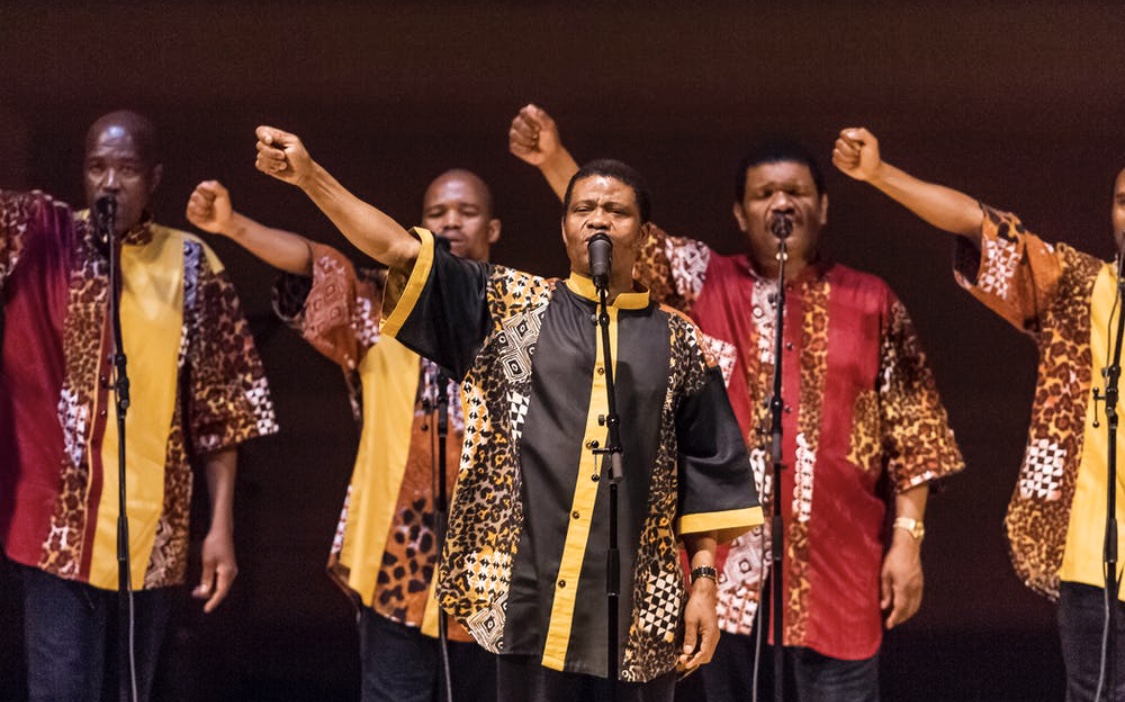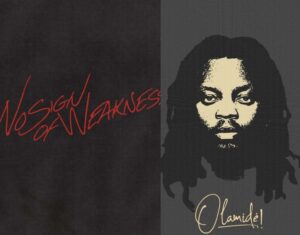Ladysmith Black Mambazo is a phenomenal group of male South African choristers. I’m sure you know of them. But in case you’re still confused, they’re a beautiful group that often sings in Zulu or English. Their harmonies have the ability to transport you to a peaceful realm where it is just you and their beautiful voices. Their soft dance movements are sure to make you wish you knew what the next step was, just so you could dance and sing along with them.
Dressed in their beautiful African prints that often change from performance to performance, Ladysmith Black Mambazo started out as a South African sensation and went on to conquer the world. They have been around since the ’70s. You can’t miss those soft dance movements that often accompany their music, with their signature stark white sneakers.
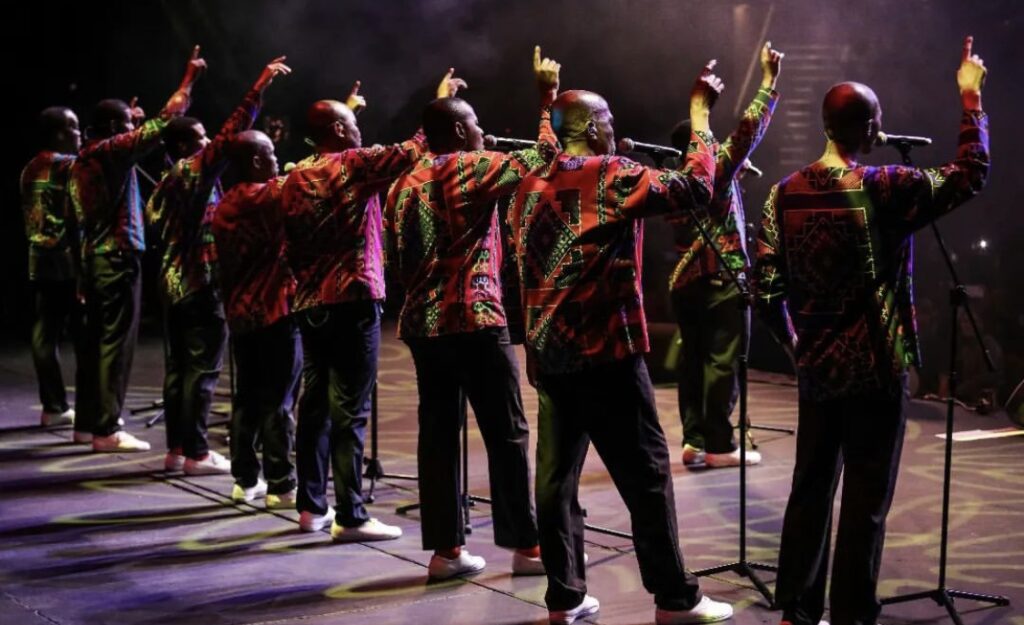
But we can’t tell the story of the beautiful group without talking about how they came to be. Let’s take a little detour and talk about the founding of Ladysmith Black Mambazo.
Joseph Shabalala: The dreaming chorister
Sometime in the ’60s, there was a young man called Joseph Shabalala. He lived on a beautiful farm in South Africa that was close to a town called Ladysmith. Shabalala played the guitar fairly well in a choral group called ‘The Blacks’.
Eventually, it was clear to the group that Shabalala had more to offer, and he became their leader. The little group won many local vocal competitions at the time.
Shabalala didn’t stop there. He formed his own group and called it Ladysmith Black Mambazo, and that was the beginning of it all. The group was composed mostly of his family members. I imagine no one else was willing to stake their career on Shabalala’s hunch. Going by how successful the group became, I’m sure they wish they had.
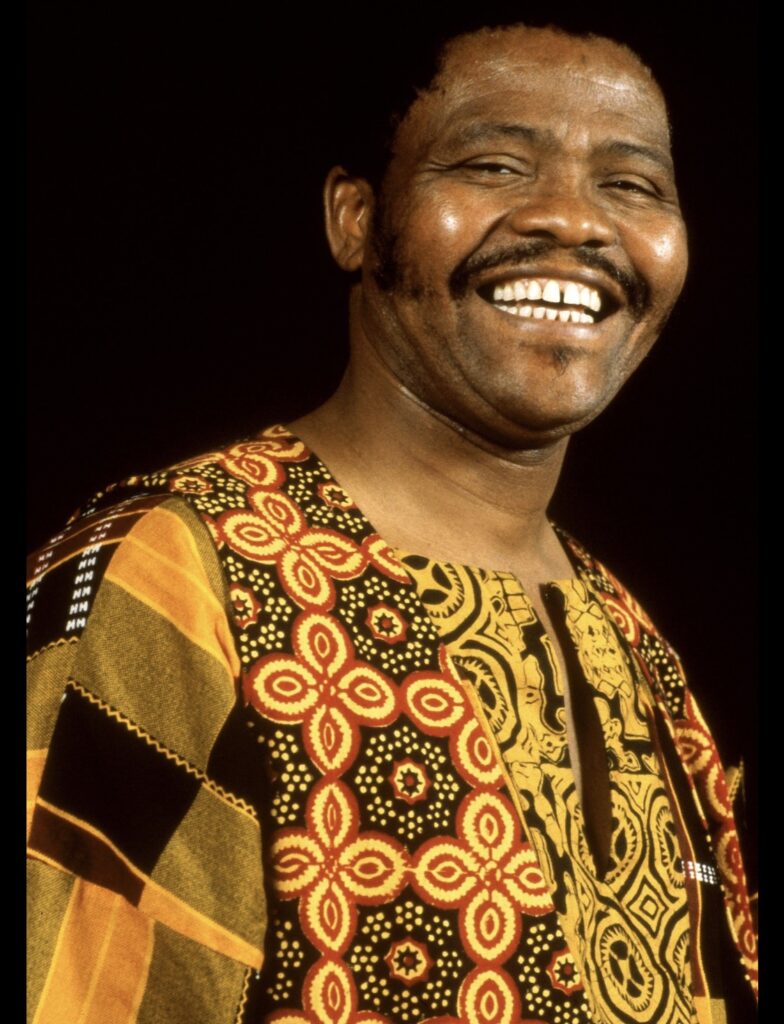
Shabalala composed most of the singing techniques and music styles the group used. In many interviews, people were always curious to know where his inspiration came from. When asked, Shabalala would often talk about being ministered to by a choir in his dreams every night for a period of about six months.
He likened the experience to a period of training where he learnt from this spiritual group that ministered to him when the rest of the world was asleep. He would talk about how perfect their harmonies were and tried to recreate them with his group as much as possible.
In his own words, “I was lucky to be trained by that spiritual group. These people were my teachers. I learnt everything about music from those people.”
The name Ladysmith Black Mambazo is a very interesting and uncommon name for a music group. I can tell Ladysmith signifies their origin. Black Mambazo means “black axe” in English. I assume that probably signifies their vocal strength. A black axe doesn’t sound like something you would want to reckon with.
Now that you’re all caught up, your next question might be when exactly their big break happened…
Paul Simon and Ladysmith Black Mambazo
In 1986, an American musician and songwriter, Paul Simon, featured the choral group on his album “Graceland ”. The name Paul Simon appears a lot in the history of Ladysmith Black Mambazo, and that is because their work with him led to their big break into international pop audiences. The rivetting warmth with which the group sang was what attracted Paul Simon to them in the first place. In his words…
“It isn’t merely the grace and power of their dancing or the beauty of their singing that rivets the attention, but the sheer joy and love that emanates from their being.”

On Graceland, they co-wrote the song “Homeless” and also sang the backing vocals to “Diamonds on the soles of her shoes”. After the release of the album, they went on tour with him, taking their music and South African culture everywhere they went. Nelson Mandela often referred to the group as “South Africa’s cultural ambassadors to the world”.
After that, it seemed like the rest of the world went, “Oh snap, we might be onto something here”. So many leading artists featured the group, including Dolly Parton, Stevie Wonder, and Michael Jackson. Yes, they were that good!
Their authenticity made it even easier to fall in love with them. That was something their founder, Shabalala, was very particular about. He wanted their sound to hit listeners like nothing else, and it did. Well, of course, their sound was going to be unique, I doubt there were a lot of choir groups that got their inspiration directly from above.
The group became a worldwide sensation, and they have a total of five Grammy wins and 19 Grammy nominations to their name. Their first Grammy was for an album that Paul Simon produced in 1987, “Shaka Zulu“.
Ladysmith Black Mambazo and African Music
One very important thing about Mambazo is what the impact of their voices means for African music. Through their music, they played a very key role in the Africanisation of Christianity. Their music style often combined the call and response pattern of Isicathamiya with Christian hymnody.
This served as a bridge of sorts between African music and Western culture and music. It was obvious in their collaborations with top American vocalists. The songs they created with them didn’t sound out of place but had a certain appeal that was different and pulled whoever heard them in. Again, what Nelson Mandela said about their ambassadorship was not out of place.
Even though the founder of the group, Joseph Shabalala retired in 2014 and passed on in 2020, the group still stands strong.
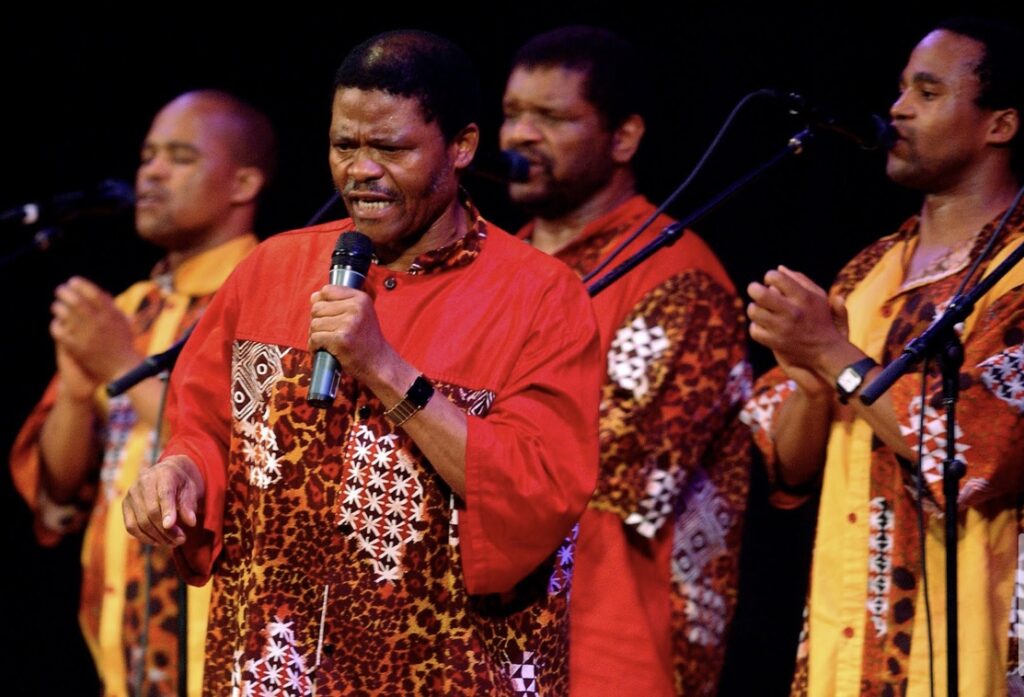
Even today, Ladysmith Black Mambazo is a group that keeps on giving. They were recently featured on Burna Boy’s album “Love, Damini”, providing that unique blend of choral harmonies to the first and last tracks of the African Giant’s album.
They have frequent tours around the world and have particularly stayed true to their sound. Ladysmith Black Mambazo still performs with the soft choreography and light hand and leg movements that the world fell in love with in the first place.
They have frequent tours around the world and have particularly stayed true to their sound. Ladysmith Black Mambazo still performs with the soft choreography and light hand and leg movements that the world fell in love with in the first place.
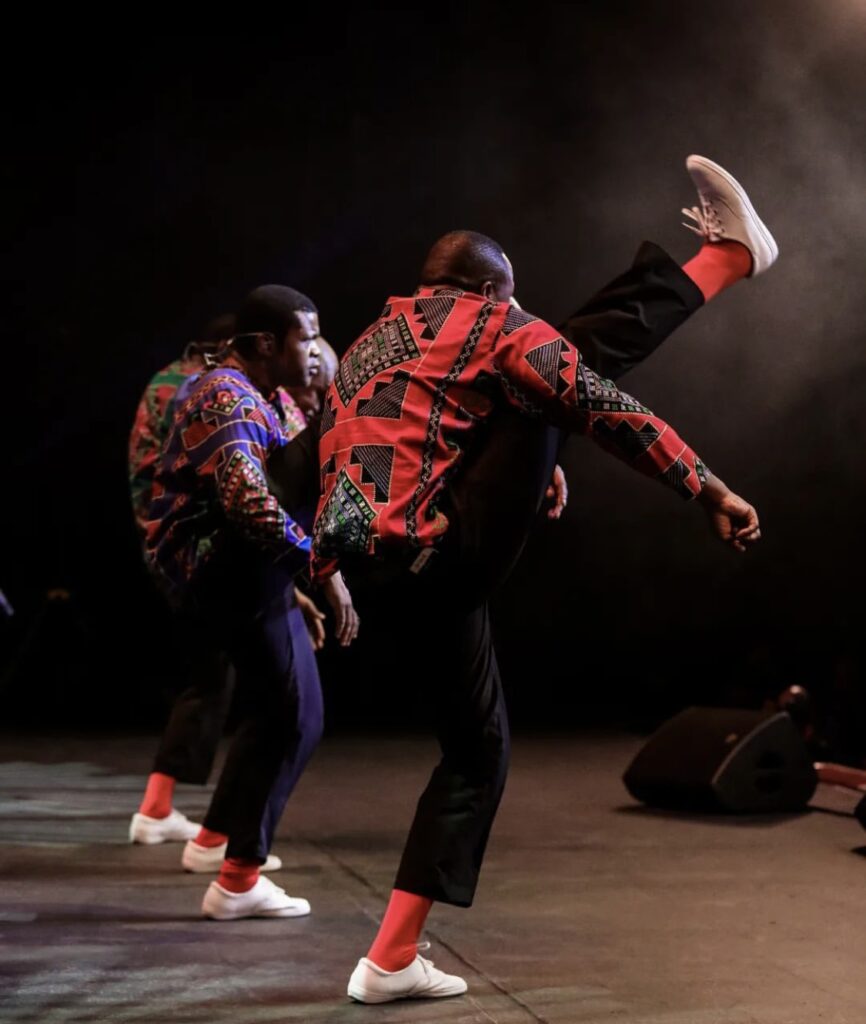
As a final piece, some evergreen advice from Shabalala that has stayed with me:
“Sometimes, you can hear the music when you just keep quiet”

